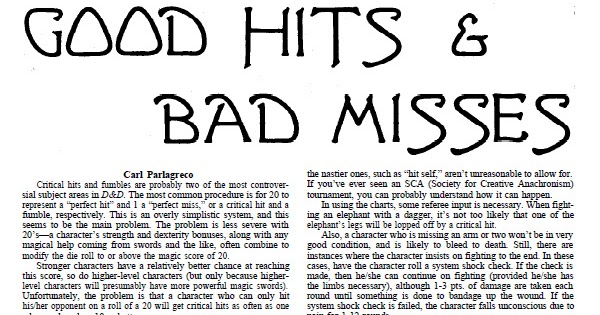Initiative in 1E is kind of a white whale for me. The system as explained is incoherent, incomplete, and over-complex, but what I can see of it has lots of good bits in it. I've been tinkering off and on with simplifying it/cleaning it up, because I think there's potential in it for the best D&D initiative system yet.
My own 20/20 hindsight kind of view of it is that it NEVER was a system that Gygax himself used or even wanted. From what I understand it was one of a number of things put into 1E because
other people asked for it. Again IIUC, he personally always used something far simpler, and maybe even half governed by DM fiat. The point being that FROM THE BEGINNING he never had any stake in that part of it - he didn't CARE if it worked, much less worked well. He didn't need to care because it's not as if it was stopping
anybody from buying the game, and he had no motivation or personal desire to fix it for everyone. When anyone ever asked him 1E initiative-related questions in later years he was mostly polite, but I always got the impression he was on some level disappointed that people didn't just fix it
for themselves, but instead kept flogging a clearly dead horse.
Of course he eventually got forced out of TSR prior to 2E even being a thing. Any opportunity for him to then officially address issues raised about 1E initiative were lost, and in 3 years TSR had created 2E (probably just so they could stop printing everything for 1E and not have to pay Gygax royalties for selling anything with his name on it).
Myself, I cut WSF in half, and have them apply to the roll every round (rather than only 1 round in 6 when initiative is tied); spell casting time is then also directly applied to the initiative roll each round, and other actions (including missile fire based on ROF) are assigned flat initiative roll modifiers. In essence it doesn't really drastically re-write the BTB system, but it works SO much more simply, and in a way far easier understood by anybody, and in a FRACTION of the written space.

